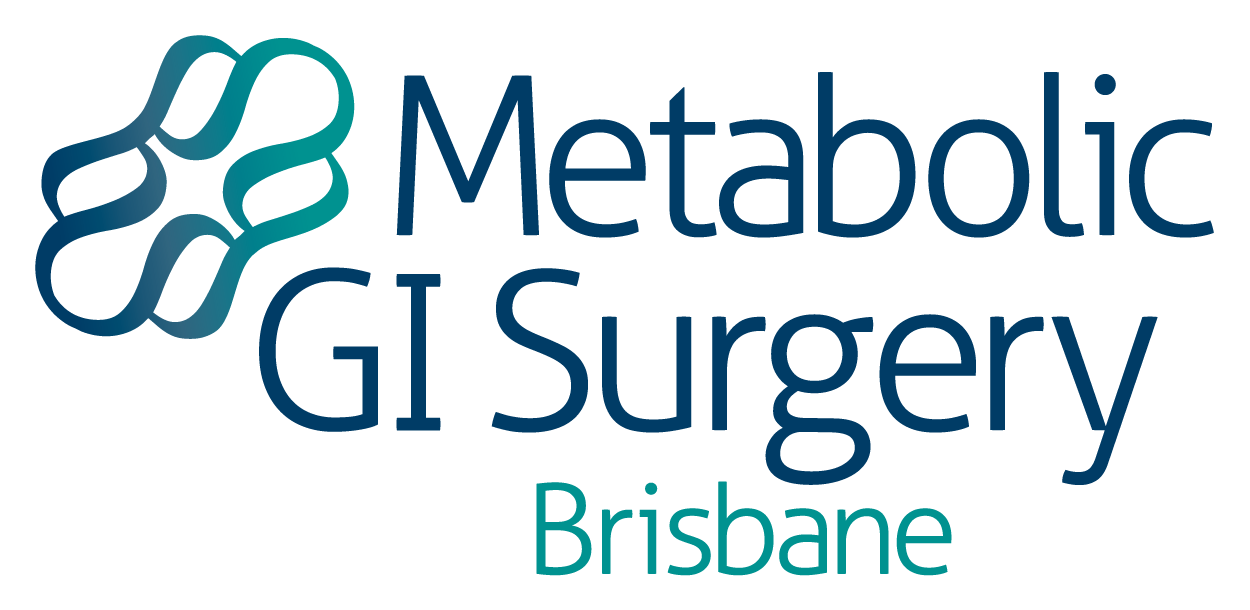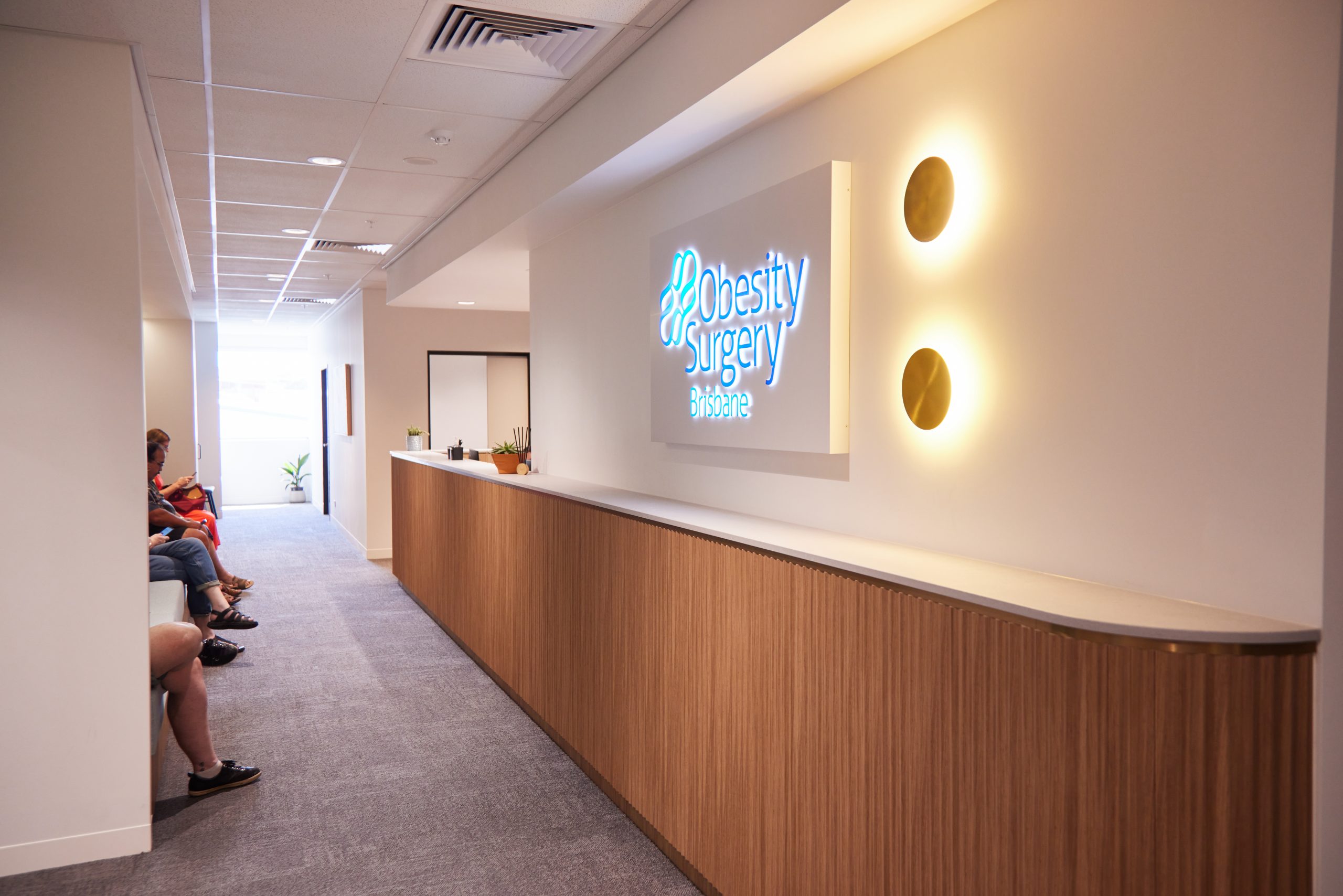Revisional Surgery
Revision surgery is the name we use when patients who have previously undergone weight loss surgery need further surgery. It is important to understand that revision surgery can have a number of different and very specific purposes.
It is very important to consider always with the surgeon, or with Dr Hopkins, the reason for the revision surgery and the aims. Before undertaking such procedures Dr Hopkins will explain in detail the risks of these procedures, what the aims of the procedure are, and the likelihood of achieving those aims. Finally it is important to understand that all the options available in revision procedures.
It is important to point out that sometimes patients will request certain revision procedures that Dr Hopkins does not feel is in the best interest of the patients. Obviously the ultimate aim for all our patients is safe, long-term weight loss with a good quality of life. Achieving these aims in the revision setting can be difficult and that is why the very specifics of the operative intervention must be understood by the patients. It is often the revision procedures that Dr Hopkins may not plan to undertake after one consultation, our team will often give the patient some time to digest the information and at a second appointment more specific plans can be made.
Revising The Same Procedure
The other type of revision is where we will undertake to convert one operation to another type of operation. Again, in this setting the initial aim will be to assess the outcome of the primary operation, the trajectory of the weight loss, and to detail any obvious issues with weight regain. At the time of your consultation the clinic nurse will want as much information about the original surgery as can be obtained. We endeavor to outline clearly the progress that was made with the primary procedure, how successful and well tolerated it was, over what period of time, and what the causes of subsequent issues or a change in the weight loss profile. From the outset, although we will discuss the details of revisional surgical options, our team goes to great length to reconsider all aspects of the patient’s previous journey so that we can optimise the likely outcome of a revisional bariatric journey. This will invariably mean close interaction with all of the allied health team, nurses, dietitians and perhaps psychologist.
Broadly speaking there are two reasons why patients will consider revision surgery in planning to take from one operation to the next operation. The field of bariatric surgery has progressed a great deal in the last 10-15 years and a number of operations that were not available to patients in the early 2000’s are now quite common place, and not unreasonably a number of patients seek better solutions to their current issues. In almost all circumstances Dr Hopkins will recommend some form of gastric bypass as the best form of revisional surgery. After a detailed history has been taken various investigations will be required, such as radiological investigations and endoscopic image. These will help the team judge how difficult or otherwise revisional surgical intervention will be.
The two most common reasons that we undertake revisional surgery currently is conversion of previous patients with adjustable gastric bands and patients with a previous sleeve gastrectomy. Again, as mentioned, in most instances Dr Hopkins will recommend some form of gastric bypass.
To reiterate most patients are seeking improved weight loss outcomes for revisional surgery as well as improved symptom control.
Conversion to Another Procedure
The other type of revision is where we undertake to convert one operation to another type of operation. Again, in this setting the initial aim will be to assess the outcome of the primary operation, the trajectory of the weight loss, and to detail any obvious issues with weight regain. At the time of your consultation the clinic nurse will want as much information about the original surgery as can be obtained. We endeavor to outline clearly the progress that was made with the primary procedure, how successful and well tolerated it was, over what period of time, and what the causes of subsequent issues or a change in the weight loss profile. From the outset, although we will discuss the details of revisional surgical options, our team goes to great length to reconsider all aspects of the patient’s previous journey so that we can optimise the likely outcome of a revisional bariatric journey. This will invariably mean close interaction with all of the allied health team, nurses, dietitians and perhaps psychologist.
Broadly speaking there are two reasons why patients will consider revision surgery in planning to take from one operation to the next operation. The field of bariatric surgery has progressed a great deal in the last 10-15 years and a number of operations that were not available to patients in the early 2000’s are now quite common place, and not unreasonably a number of patients seek better solutions to their current issues. In almost all circumstances Dr Hopkins will recommend some form of gastric bypass as the best form of revisional surgery. After a detailed history has been taken various investigations will be required, such as radiological investigations and endoscopic image. These will help the team judge how difficult or otherwise revisional surgical intervention will be.
The two most common reasons that we undertake revisional surgery currently is conversion of previous patients with adjustable gastric bands and patients with a previous sleeve gastrectomy. Again, as mentioned, in most instances Dr Hopkins will recommend some form of gastric bypass.
To reiterate most patients are seeking improved weight loss outcomes for revisional surgery as well as improved symptom control.
Adjustable Gastric Band to Gastric Bypass
The adjustable gastric band revisional procedure is usually planned as a one-step procedure. A number of surgical teams will always recommend removing the band and waiting a period but our unit for some time has performed single stage removal of the adjustable gastric band and conversion to gastric bypass in one procedure. We have now have enormous amount of date on the safety profile of such intervention and these outcomes have been presented and published in various journals. That said the pre-operative assessment will determine whether Dr Hopkins will attempt to undertake a single stage procedure, and even at the time of surgery it will be explained to the patient that even findings during the surgery, that were perhaps not anticipated pre-operatively, can still effect the decision as to whether proceed or not proceed with a revisional gastric bypass procedure on the day of the surgery. These issues will be explained to you in details.
The reason we believe that the gastric bypass is the best operation in this setting is based on both the likely weight loss profile of a bypass and the likely safety profile of a bypass. The bypass has always been considered the likely “goal standard procedure” so it is our belief that after a failed or complicated adjustable gastric band the only reasonable option is the gastric bypass which can be performed safely with the key hole techniques and we believe that it gives an improved weight loss outcome than the other option of a sleeve gastrectomy.
It is important also to understand that in a gastric bypass, although the stomach is bypassed, it is not removed. In a sleeve gastrectomy 90% of the stomach is actually removed. This point is emphasized because this is what provides a better safety profile for bypass patients in the revision setting. Because the remaining stomach is still intact it provides a safety barrier for correcting problems in the post-operative period after revisional surgery. Again, this will be explained to you in detail at the consultation.
The usual effect of the revisional gastric bypass in the previous gastric band patients is that they perceive a much more “normal” sense of eating patterns. The stomach is significantly reduced in volume “30-40ml” it does not have the dramatic retching and reflux affect that the gastric band has become so associated with. We believe that the quality of life for revisional gastric bypass patients is significantly better without obviously having the need for any adjustments and with a far more predictable weight loss curve. It must be emphasised at this point however that despite all our best efforts revisional weight loss surgery is always a significantly higher risk procedure and potentially lower yield procedure (not working as well as a primary procedure).
Sleeve Gastrectomy to Gastric Bypass
The other common option currently in our clinic is patients approaching us for revision surgery having had a previous sleeve gastrectomy. Again, the team will take a detailed history of the surgical intervention, its successes, the weight loss trajectory and the symptom complex control. Although the sleeve gastrectomy has been a very successful endeavor for great many patients we are noticing a number of patients with a tendency towards weight regain and a tendency towards quite severe gastroesophageal reflux. Both of these issues need to be communicated to the team so that the best surgical plan can be formulated with a view to providing the patient with a safe revisional procedure that will permit ongoing weight loss and reflux symptom control.
Again, before considering revisional surgery a number of radiological and endoscopic examinations may be required and again as will be explained by Dr Hopkins in terms of the anatomical detail quite often the decision to perform a gastric bypass with both safety and effectiveness in mind decisions will be made at the time of the surgery about which procedure and the risk profile associated with such intervention.
As described already revision surgery for further weight loss following a sleeve gastrectomy must be considered after all members of the allied health team have made a contribution to assessing the patient. Obviously there have been issues surrounding eating behavior and responses to the sleeve gastrectomy, we would like to investigate and anticipate further issues after revisional surgery.
It is important to point out that there are essentially no real surgical revision options available following a gastric bypass procedure, so every effort must be made by both the patient and the team to be very deliberate about making sure that the revisional option is carefully considered and every possible effort made to improve post-operative outcome will be made by the allied health team.
 07 3861 4677
07 3861 4677 reception@osb.net.au
reception@osb.net.au
